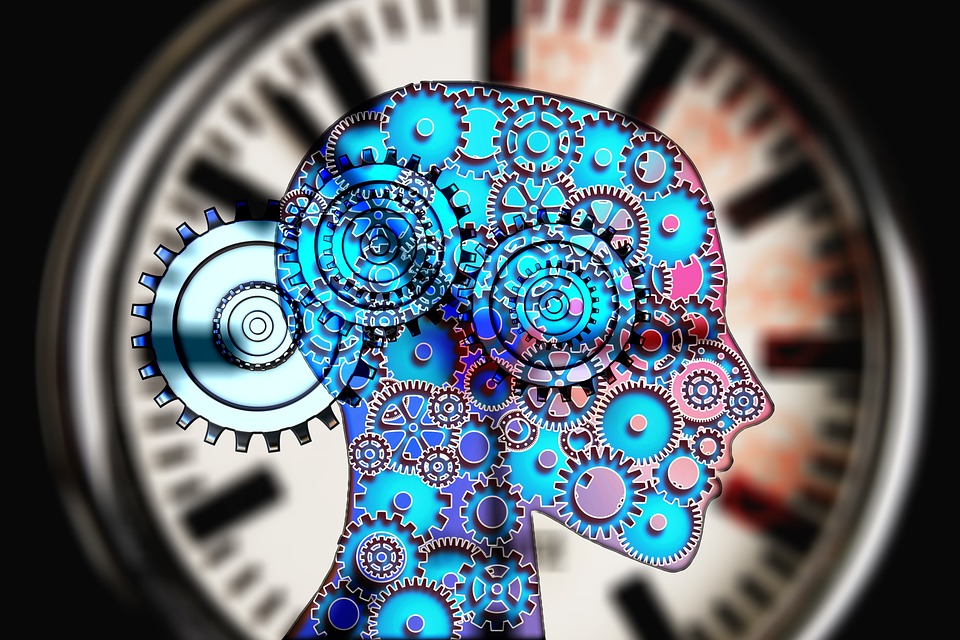by Dr. Phil | Jan 3, 2024 | DBT Therapy
[ad_1]
Eating disorders are complex mental health conditions that can be incredibly challenging to treat. Traditional approaches to therapy and treatment often fall short in addressing the deep-seated emotional and psychological issues that underlie these disorders. However, a groundbreaking treatment approach known as Dialectical Behavior Therapy (DBT) is revolutionizing the way eating disorders are managed and treated.
DBT was originally developed by psychologist Marsha Linehan in the 1980s as a treatment for individuals with Borderline Personality Disorder. Since then, it has become increasingly recognized as an effective therapy for a wide range of mental health conditions, including eating disorders. DBT is founded on the principle of dialectics, which emphasizes the integration of opposing concepts and a focus on finding a balance between acceptance and change.
One of the key components of DBT is its focus on teaching individuals skills to regulate their emotions, tolerate distress, and improve interpersonal relationships. These skills are especially crucial for individuals with eating disorders, as they often struggle with managing intense emotions and engaging in harmful behaviors such as binge eating, purging, or restrictive eating patterns as a way of coping with their emotions.
One of the hallmark skills taught in DBT is mindfulness, which involves being fully present in the moment and observing one’s thoughts and feelings without judgment. Mindfulness can be particularly beneficial for individuals with eating disorders, as it can help them become more attuned to their body’s hunger and fullness cues, as well as recognize and challenge negative thoughts and beliefs about their bodies and food.
Another important aspect of DBT is its emphasis on validation and acceptance. Many individuals with eating disorders experience intense feelings of shame and self-criticism, which can further perpetuate their disordered eating behaviors. In DBT, therapists work to validate the individual’s experiences and emotions, fostering a sense of acceptance and understanding that can be instrumental in the healing process.
Furthermore, DBT incorporates strategies for managing and coping with distress, which is particularly important for individuals with eating disorders who may turn to unhealthy behaviors as a way of dealing with emotional pain. By equipping individuals with healthy coping skills and techniques for regulating emotions, DBT can help reduce reliance on disordered eating patterns as a means of managing distress.
Additionally, DBT includes a strong focus on interpersonal effectiveness, teaching individuals how to communicate their needs and boundaries effectively in relationships. This can be invaluable for individuals with eating disorders, as they often struggle with issues related to assertiveness, conflict resolution, and the ability to form healthy and supportive relationships.
Overall, the comprehensive and holistic approach of DBT has shown great promise in revolutionizing the treatment of eating disorders. By addressing the underlying emotional and psychological issues that contribute to disordered eating behaviors, DBT offers individuals a path to healing and recovery that is both effective and sustainable.
As the field of mental health continues to evolve, the integration of DBT into the treatment of eating disorders represents a significant step forward in providing individuals with the support and tools they need to overcome these challenging conditions. With its emphasis on mindfulness, distress tolerance, emotional regulation, and interpersonal skills, DBT is offering new hope for individuals struggling with eating disorders, paving the way for a brighter and healthier future.
[ad_2]

by Jason Ward | Aug 17, 2023 | DBT Therapy
[ad_1]
Eating disorders can have a devastating impact on individuals, causing severe physical and mental health issues. The road to recovery is often long and challenging, requiring a multi-faceted approach that addresses the underlying psychological factors contributing to these disorders. One such approach that has proven effective is Dialectical Behavior Therapy (DBT), a powerful therapeutic method that is making a significant difference in the lives of those battling eating disorders.
DBT was initially developed by psychologist Marsha Linehan to treat individuals with borderline personality disorder, a condition characterized by intense emotional dysregulation. However, it has since been adapted to help individuals struggling with a range of psychological disorders, including eating disorders.
So, what sets DBT apart from other therapeutic approaches? Unlike traditional talk therapy, DBT combines individual therapy sessions with group therapy and skill-building exercises, making it a holistic and comprehensive method. One of the core principles of DBT is the focus on balancing acceptance and change. Clients are taught strategies to accept their present emotions, thoughts, and circumstances, while also working towards making positive changes in their lives.
One of the key components of DBT is mindfulness, which involves being present and fully aware of one’s thoughts, actions, and surroundings. Mindfulness allows individuals to observe their eating behaviors and identify triggers and emotions associated with their disordered eating patterns. By practicing mindfulness, individuals learn to pause and discern between hunger and emotional hunger, which enables them to make healthier food choices and develop a more balanced relationship with food.
Another important aspect of DBT is emotion regulation. Many individuals with eating disorders struggle with intense emotions, using food as a way to cope or numb themselves. DBT helps clients develop alternative strategies to manage their emotions in a healthy and constructive manner. By identifying and labeling their emotions, individuals can then employ specific techniques to regulate them effectively, such as engaging in relaxation exercises, practicing deep breathing, or engaging in physical activities.
DBT also includes interpersonal effectiveness skills, which teach individuals how to navigate relationships and set boundaries. Many individuals with eating disorders struggle with people-pleasing tendencies, which often leads to unhealthy relationship dynamics and a lack of self-care. Learning effective communication, assertiveness, and self-advocacy skills allows individuals to build healthier relationships and establish boundaries that support their recovery journey.
While DBT is a structured and evidence-based therapy, it also acknowledges the individuality of each person’s experience and focuses on the specific concerns and goals of the client. The therapist and client work collaboratively to develop a treatment plan tailored to the individual’s needs, strengths, and struggles.
Studies have shown that DBT can be an effective treatment for eating disorders, particularly in reducing symptoms, improving overall psychological functioning, and preventing relapse. Its comprehensive approach, addressing the emotional, cognitive, and behavioral aspects of eating disorders, has been pivotal in helping individuals make lasting changes and improve their overall quality of life.
In conclusion, DBT offers a life-changing power for those battling eating disorders. By combining therapy, skill-building exercises, and a focus on acceptance and change, individuals can gain a deeper understanding of underlying triggers, develop healthier coping mechanisms, and build stronger emotional resilience. With its success in reducing symptoms and improving psychological functioning, DBT is proving to be a valuable tool in the treatment of eating disorders, offering hope and healing to those on their recovery journey.
[ad_2]

by Dr Suresh | May 28, 2023 | DBT Therapy
[ad_1]
Dialectical Behavior Therapy (DBT) is a comprehensive and effective treatment option for people struggling with eating disorders. It is a type of psychotherapy that was initially developed to treat borderline personality disorder. However, research has shown that it is highly effective in the treatment of other conditions, including eating disorders.
Eating disorders are complex mental health issues that affect a person’s eating behaviors, body image, and mental health. These disorders come in different forms, including anorexia nervosa, bulimia nervosa, and binge-eating disorder, among others. People with eating disorders often struggle with negative self-talk, low self-esteem, and a distorted body image.
DBT for eating disorders is a type of therapy that is grounded in four key components: mindfulness, distress tolerance, emotion regulation, and interpersonal effectiveness. These components are designed to help the patient achieve the following:
1. Mindfulness: This component involves being present in the moment and paying attention to one’s thoughts, feelings, and sensations without judgment.
2. Distress tolerance: This component helps the patient learn to tolerate difficult emotions without resorting to disordered eating behaviors.
3. Emotion regulation: This component involves learning to identify and regulate one’s emotions in a healthy manner.
4. Interpersonal effectiveness: This component teaches the patient how to communicate effectively with others and develop healthy relationships.
DBT for eating disorders involves individual and group therapy sessions. In these sessions, the patient learns skills and strategies to help them manage their eating behaviors and improve their mental health. The therapist also helps the patient to identify and challenge distorted thoughts and beliefs about their body image and self-worth.
During DBT sessions, the therapist may use various techniques and strategies, including mindfulness exercises, role-playing, journaling, and goal setting, among others. The goal of DBT for eating disorders is to help the patient achieve a healthy relationship with food, improve their mental health, and develop a positive self-image.
Research has shown that DBT is highly effective in the treatment of eating disorders. A study published in the Journal of Clinical Psychology found that patients who received DBT had significant improvements in their eating disorder symptoms, self-esteem, depression, and anxiety compared to those who received traditional therapy. Another study published in the Journal of Eating Disorders found that DBT was effective in reducing binge eating, purging, and other disordered eating behaviors.
In conclusion, DBT for eating disorders is a comprehensive and effective treatment option that can help people struggling with these complex mental health issues. It provides patients with skills and strategies to manage their eating behaviors, improve their mental health, and develop healthy relationships with themselves and others. If you or someone you know is struggling with an eating disorder, consider seeking DBT as a treatment option.
[ad_2]


